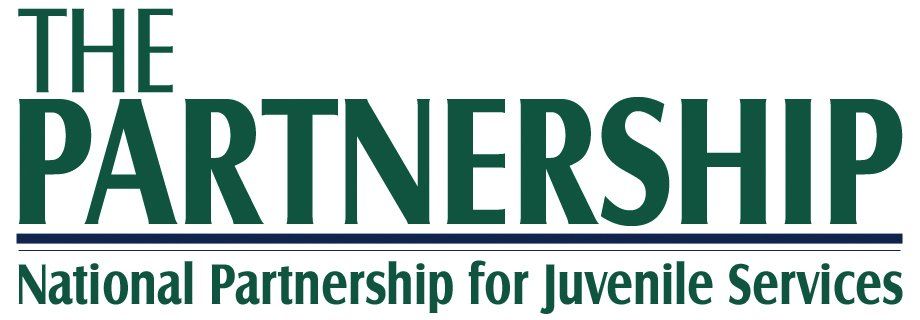Position Statements
NPJS is committed to generating Position Statements on critical and timely issues confronting the juvenile services profession. Position Statements have historically been referenced within agencies as they improve direct service or to justify policy change, as tools to advocate for legislative change or to identify areas where funding allocations may be focused.
Purpose of Position Statements
The National Partnership for Juvenile Services (NPJS) issues Position Statements on issues impacting the operations of juvenile facilities, community-based service lines and court processes. These Position Statements seek to recognize the basic rights and needs of juveniles who fall under the jurisdiction of a juvenile delinquency court or are at-risk of juvenile court involvement. The Position Statements propose a minimum level of service to ensure basic rights are protected and needs are addressed to improve outcomes and divert youth from unnecessary intrusion further into the juvenile or adult court system. Position Papers strive to establish best practices in juvenile justice services.
NPJS recognizes that states and jurisdictions vary in legal requirements and restrictions, that they vary in philosophic practice, and that facility administrators are obligated to follow the directions of their governing bodies. Position Statements are not designed to criticize any of these individual states, facilities, or administrators. They serve to encourage system improvement and to offer justification for additional resources and technical assistance which may be needed to facilitate improved outcomes as these programs balance public safety and rehabilitative services juveniles and families.
Process for Developing Position Statements
NPJS encourages member participation in ad hoc workgroups that serve under the umbrella of the Critical Issues Committee (the Committee). Each year during the annual National Symposium on Juvenile Services, the Committee shall provide a draft list of Critical Issues to the Board. This list will provide the basis for the creation of Position Statements for the upcoming year. However, the Committee shall respond to any issues arising throughout the year, as needed.
The ad hoc Committees will convene regular meetings throughout the year to craft Position Statements and to discuss other policy issues impacting the membership. When a Position Statement has been drafted and approved by the ad hoc Committee, it will be distributed to the NPJS Membership with a deadline for comments of at least one week prior to the next regularly scheduled Committee meeting. Members will have at least one week to review and submit comments. Submitted comments will be distributed to the Committee for consideration and any edits to the original draft will be discussed during the next meeting. If no comments are received, the Position Statement will be submitted to the Board of Directors for a vote.
If substantive edits are made to the first draft Position Statement, a second draft Position Statement will be redistributed to the membership highlighting the edited sections. The Committee will accept comments on the second draft Position Statement with a deadline of at least one week prior to the next meeting and again giving members at least one week to review and provide comments. The Committee will meet to consider any final comments and will prepare the final draft for Board Approval.
The Committee will not accept any additional comments nor shall they make any editorial changes once the Position Statement is submitted for Board approval. If the Board votes to approve the Position Statement, it shall be published on the website and distributed to the membership. If the Board votes against the Position Statement, the Board may return the Statement to the Committee with recommendations/commentary at which point the Committee shall add the issue to the list of Critical Issues and prioritize accordingly.
Current Position Statements
- 2025 – Complex Care for Juvenile Justice-Impacted Youth
- 2022 – Emergency Behavioral Interventions
- 2022 – Trauma Responsive Juvenile Services
- 2021 – Juvenile Justice System Use of Practice-Based Evidence
- 2020 - NPJS Legislative & Public Policy Platform
- 2018 - Identifying and Responding to Youth with Brain Injuries within the Juvenile Justice System
- 2018 - Personal Searches
- 2018 - Engaging Youth in Positive Development
- 2017 - Addressing Mental Health Issues in Juvenile Justice
- 2016 - Programs and Services for Girls and Young Women in the Juvenile Justice System
- 2016 - Use of Mechanical Restraints During Court Proceedings
- 2015 - Education in Juvenile Facilities
- 2015 - Sentencing Juveniles to Life in Prison without the Opportunity for Parole
- 2015 - Service Delivery & Fiscal Responsibility
- 2014 - Detention as Disposition
- 2014 -
Repurposing Juvenile Justice Facilities
- 2014 - Suicide Prevention in Juvenile Justice Facilities
- 2014 - Use of Isolation
- 2013 - Minimum Direct Care Staff Ratio in Juvenile Detention and Correctional Facilities
- 2013 - Holding Juveniles Charged as Adults in Juvenile Detention
- 2011 - Placement and Treatment of Pre-Adolescents in a Detention Facility
- 2011 - Recruitment, Selection, and Retention of Juvenile Justice Professionals
- 2011 - Sexual Abuse in Juvenile Confinement Facilities/PREA
- 2011 - Use of Electroshock Devices in Juvenile Detention and Secure Residential Facilities
- 2002 - Unit and Facility Size
- 2002 - Health Care in Juvenile Detention
- 1999 - Gender Specific Programming in Juvenile Detention and Corrections
- 1997 - Privatization
- 1997 - Collocation of Juvenile and Adult Facilities
- 1995 -
Overcrowding
